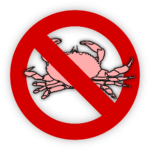
In the journey of taking care of your furry friend, it’s important to consider the best dietary choices, especially if your dog is carrying a bit of extra weight. “Dietary Considerations for Overweight Dogs” provides valuable insights into how you can support your companion’s health and well-being through mindful food selection and appropriate supplements. From the benefits of omega-3 fatty acids and probiotics to the importance of maintaining joint health with glucosamine and chondroitin, this guide covers everything you need to know. Consult with your veterinarian to tailor a plan that includes the highest-quality dog food and health products, ensuring your pet maintains optimal health at any age. Have you been wondering how to manage your overweight dog’s diet? If so, you’re not alone. Many dog owners are concerned about the health and well-being of their furry friends, and diet plays a crucial role in maintaining optimal health. This article will guide you through the dietary considerations you should take into account to help your dog achieve and maintain a healthy weight.
Understanding the Problem
Before diving into specific dietary considerations, it’s essential to understand the impact that being overweight can have on your dog’s overall health and well-being. Obesity in dogs is linked to several health issues, including diabetes, heart disease, and joint problems.
Common Health Issues in Overweight Dogs
- Joint Problems: Carrying extra weight puts additional stress on your dog’s joints which can lead to arthritis, particularly in older dogs or specific breeds prone to hip and joint problems.
- Heart Disease: Similar to humans, overweight dogs are at a higher risk of developing heart conditions.
- Diabetes: Excess weight increases the risk of insulin resistance and diabetes.
- Reduced Lifespan: Studies show that overweight dogs tend to have shorter lifespans compared to their healthy weight counterparts.
By understanding the issues, you can be more proactive in taking steps to ensure your dog’s health.
Consult Your Veterinarian
The Importance of Professional Advice
Before making any changes to your dog’s diet, it’s crucial to consult your veterinarian. They can provide personalized advice tailored to your dog’s specific needs, considering factors such as age, breed, and current health status.
What to Discuss with Your Vet
- Current Health Status: Discuss any underlying health issues that may be affected by dietary changes.
- Best Diet Options: Explore the best types of dog food and supplements.
- Weight Loss Goals: Set realistic and healthy weight loss objectives.
- Activity Level: Assess how your dog’s exercise routine can complement the dietary changes.

Components of a Healthy Diet
Maintaining a balanced diet is essential for your dog’s overall health. Here are the critical components you should look for in a well-balanced dog diet.
Essential Nutrients
- Proteins: Necessary for muscle repair and maintenance.
- Carbohydrates: Provide energy but should be limited for overweight dogs.
- Fats: Essential for skin and coat health, but should be in moderation.
- Vitamins and Minerals: Crucial for various bodily functions.
- Fiber: Aids in digestion and helps your dog feel fuller for longer.
Balancing Macronutrients
Moderation is key. Overfeeding any particular macronutrient can lead to health issues.
| Nutrient | Importance | Sources |
|---|---|---|
| Protein | Muscle repair and growth | Chicken, beef, fish |
| Carbohydrates | Energy and vitality | Sweet potatoes, rice |
| Fats | Skin and coat health, energy storage | Fish oil, flaxseed |
| Vitamins | Overall health and immune support | Vegetables, organ meats |
| Fiber | Digestion | Vegetables, special dog kibble |
Choosing the Right Dog Food
Selecting the right dog food is vital. Not all dog foods are created equal, and some are more tailored towards weight management than others.
Types of Dog Food
- Commercial Dog Foods: These often have ‘weight management’ formulas.
- Prescription Diets: Available through veterinarians, specifically designed to address obesity.
- Homemade Diets: If you prefer to cook for your dog, make sure the diet is balanced and consult with your vet for the right recipe.
Reading Labels
When reading dog food labels, prioritize ingredients. Look for foods that list meat as the first ingredient and avoid those high in fillers like corn and soy. Here’s a simple guide to understanding labels:
| Ingredient Category | What to Look For |
|---|---|
| Proteins | Named animal protein (e.g., chicken, beef, fish) |
| Fats | Fish oil, flaxseed oil |
| Carbohydrates | Whole grains, sweet potatoes |
| Fillers | Avoid corn, soy, wheat |
| Additives | Avoid artificial colors, flavors, and preservatives |

Supplementation
Types of Supplements
Supplements can play a vital role in ensuring your dog receives all necessary nutrients while managing weight.
- Multivitamins: Help fulfill any nutritional gaps in your dog’s diet.
- Probiotics: Support digestive health.
- Joint Supplements: Such as glucosamine and chondroitin, critical for older and larger breeds.
- Fatty Acids: Omega-3 and Omega-6 for healthy skin and coat.
- Weight Management Supplements: Specific supplements that aid in weight loss or maintenance.
Popular Supplements
Several popular supplements are backed by veterinarians and dog owners alike:
- Glucosamine and Chondroitin: For joint health.
- Omega-3 Fatty Acids: For skin and coat health.
- Probiotics: For digestive health.
- Multivitamins: For overall wellness.
Administering Supplements
Always consult your vet before starting any supplement regimen. The dosage and type should be appropriate for your dog’s size, age, and health condition.
Exercise: The Other Half of the Equation
Diet alone isn’t enough to maintain a healthy weight. Exercise is equally important for your dog’s overall health and well-being.
Types of Exercise
- Daily Walks: Aim for at least 30 minutes a day.
- Playtime: Activities like fetch, tug-of-war.
- Swimming: Low-impact and excellent for joint health.
- Agility Training: Engages both mind and body.
Setting a Routine
Establish a consistent routine that combines diet and exercise for the best results. Here’s a simple daily plan:
| Time | Activity |
|---|---|
| Morning | 15-20 minutes of walking or playtime |
| Afternoon | Mental stimulation games or light activity |
| Evening | 15-20 minutes of walking or playtime |

Natural Remedies and Organic Products
Sometimes, natural remedies and organic products can offer additional support in managing your dog’s weight.
Benefits of Natural Remedies
- Fewer Side Effects: Generally safer with fewer side effects.
- Holistic Health: Focus on overall wellness rather than specific symptoms.
- Sustainable: Often more eco-friendly and sustainable.
Common Natural Products
- Herbal Supplements: Such as turmeric for inflammation.
- Organic Dog Food: Free from artificial additives and preservatives.
- Homemade Treats: Made from natural ingredients.
How to Use Natural Products
Always consult with your veterinarian before introducing any new natural product into your dog’s diet. Start with a small amount and monitor your dog for any adverse reactions.
Monitoring Progress
To ensure that your dietary changes are effective, regular monitoring is essential.
Regular Weigh-Ins
Weigh your dog every two weeks to track progress. If you don’t see any changes after a month, consult your vet to reassess the plan.
Keeping a Journal
Maintain a journal of your dog’s eating habits, exercise routines, and weight changes. This can help identify what works and what doesn’t.
Vet Check-Ups
Regular vet check-ups are essential, particularly if your dog has other underlying health issues. These visits can provide valuable insights and adjustments to the diet and exercise plan as needed.
Dental Health Considerations
Importance of Dental Health
Overweight dogs are not only at risk for systemic health issues but dental health problems as well. Plaque and tartar build-up can lead to gum disease and tooth decay.
Dietary Impact on Dental Health
Foods high in sugars and starches can further exacerbate dental issues. Opt for dental-specific chews that help reduce plaque and tartar.
Tips for Better Dental Health
- Regular Brushing: Brush your dog’s teeth regularly with pet-friendly toothpaste.
- Dental Chews: Use specially designed chews that clean the teeth and promote gums’ health.
- Routine Cleanings: Schedule regular dental cleanings with your vet.
Senior Dogs: Special Considerations
Senior dogs require even more attention when it comes to diet and weight management.
Nutritional Needs of Senior Dogs
Senior dogs often have slower metabolisms and may require fewer calories. However, they still need sufficient protein and other essential nutrients to maintain muscle mass and overall health.
Joint Health
Older dogs are more susceptible to joint issues. Supplements such as glucosamine, chondroitin, and Omega-3 fatty acids can be particularly beneficial.
Monitoring Health
Senior dogs should have more frequent vet check-ups to monitor for signs of arthritis, heart disease, and other age-related conditions.
Final Thoughts and Action Plan
Maintaining your dog’s health is a continuous process that involves balanced nutrition, regular exercise, and periodic vet visits. Here’s a summarized action plan:
- Consult Your Vet: The first step for tailored advice.
- Choose the Right Dog Food: Opt for balanced, high-quality dog food.
- Introduce Supplements: Consider adding beneficial supplements to the diet.
- Exercise Regularly: Implement a consistent exercise routine.
- Monitor Progress: Keep track of weight changes and health indicators.
- Focus on Dental Health: Maintain good dental hygiene.
- Adjust for Age: Tailor diet and care for senior dogs.
By following these guidelines, you can help your overweight dog achieve a healthier, happier life. Remember, the effort you put into maintaining your dog’s health today will pay off in the long term. Here’s to a happier, healthier companion for years to come!







